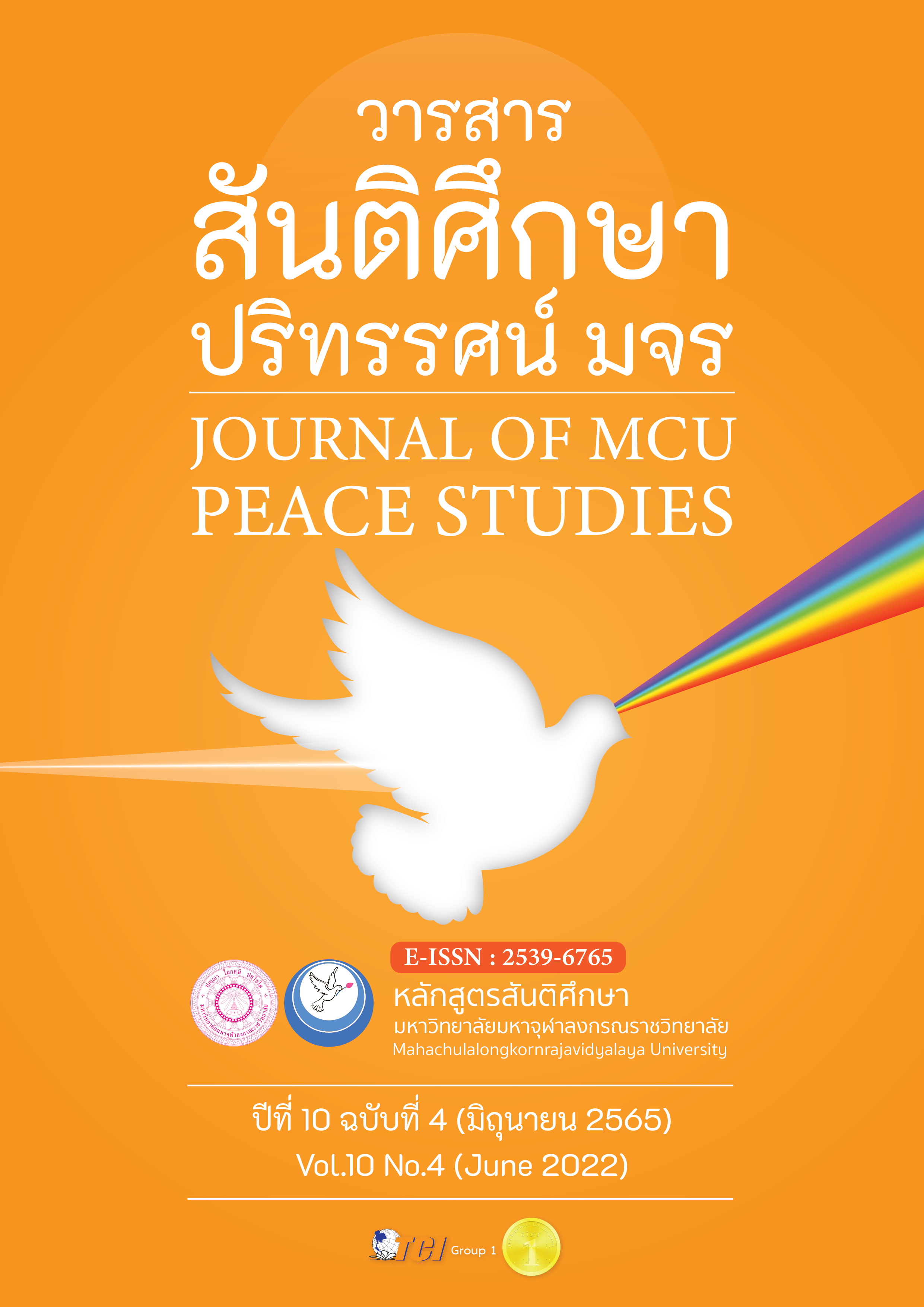แนวทางการพัฒนาดิจิทัลแพลตฟอร์มเพื่อสร้างความได้เปรียบ ทางการแข่งขันของธุรกิจโรงแรมไทย
Main Article Content
บทคัดย่อ
บทความวิจัยนี้มีวัตถุประสงค์เพื่อ 1) เพื่อศึกษาสภาพการณ์การใช้ดิจิทัลแพลตฟอร์มของธุรกิจโรงแรมในประเทศไทย 2) เพื่อเสนอแนวทางการพัฒนาดิจิทัลแพลตฟอร์มเพื่อสร้างความได้เปรียบทางการแข่งขันของธุรกิจโรงแรมในประเทศไทย การดำเนินการวิจัยครั้งนี้เป็นการวิจัยเชิงคุณภาพแบบวิธีปรากฏการณ์วิทยา โดยใช้การสัมภาษณ์เชิงลึกแบบกึ่งโครงสร้างกับผู้ให้ข้อมูลหลัก ได้แก่ ผู้เชี่ยวชาญและบุคลากรระดับผู้บริหารทางด้านการท่องเที่ยว โรงแรม และสื่อออนไลน์ ทั้งภาครัฐและเอกชน จำนวน 9 คน จากการคัดเลือกกลุ่มตัวอย่างแบบเจาะจงและผ่านการวิเคราะห์ข้อมูลโดยใช้วิธีการวิเคราะห์เชิงเนื้อหา
ผลการศึกษาพบว่า 1) การพึ่งพาดิจิทัลแพลตฟอร์มบริษัทตัวแทนออนไลน์ของต่างชาติของผู้ประกอบการโรงแรมในประเทศไทยโดยเฉพาะโรงแรมขนาดเล็กสามารถช่วยให้เข้าถึงกลุ่มลูกค้าได้ง่ายแต่ต้องชำระค่าธรรมเนียมให้กับบริษัทตัวแทนออนไลน์ในราคาที่สูงและถูกผูกมัดด้วยสัญญาที่ต้องเปิดเผยราคา ทำให้ไม่สามารถขายห้องพักในราคาที่ต่ำกว่าบริษัทตัวแทนออนไลน์ได้ 2) ภาครัฐยังสูญเสียรายได้ภาษีจำนวนมหาศาล เนื่องจากรายได้ของบริษัทตัวแทนออนไลน์ถูกนำออกนอกประเทศ บริษัทตัวแทนออนไลน์ยังไม่มีการลงทุนด้านการพัฒนาสาธารณูปโภคและสิ่งอำนวยความสะดวกขั้นพื้นฐานด้านการท่องเที่ยวในประเทศไทย สำหรับข้อ 2 แนวทางการพัฒนาดิจิทัลแพลตฟอร์มเพื่อสร้างความได้เปรียบทางการแข่งขันของธุรกิจโรงแรมในประเทศไทยมีข้อค้นพบ 6 ด้าน ได้แก่ 1) คุณภาพการบริการทางช่องทางออนไลน์ 2) สิทธิพิเศษสำหรับลูกค้า 3) การขับเคลื่อนธุรกิจจากการใช้ข้อมูลจำนวนมาก 4) ประสบการณ์จากการใช้บริการผ่านช่องทางออนไลน์ 5) สร้างการรับรู้สู่ระดับสากล 6) ผลประโยชน์ระหว่างพันธมิตร
Article Details

อนุญาตภายใต้เงื่อนไข Creative Commons Attribution-NonCommercial-NoDerivatives 4.0 International License.
ทัศนะและความคิดเห็นที่ปรากฏในบทความในวารสาร ถือเป็นความรับผิดชอบของผู้เขียนบทความนั้น และไม่ถือเป็นทัศนะและความรับผิดชอบของกองบรรณาธิการ ยินยอมว่าบทความเป็นลิขสิทธิ์ของวารสาร
เอกสารอ้างอิง
Anderson, C. (2009). The billboard effect: Online travel agent impact on non-OTA reservation volume. Cornell Hospitality Report, 9(16), 6-9.
Bangkok Post. (2018). Dirty little secrets of OTAs. Retrieved August 27, 2020, from https://www.pressreader.com/thailand/bangkok-post/20180504/282029032852852
Belk, R. (2014). You are what you can access: Sharing and collaborative consumption online. Journal of Business Research, 67(8), 1595-1600.
Bhuvaneswari, R., Varghese, J., Rajasekaran, S., & Muthulakshmi, V. (2018). Digital Marketing Using Smart Phone Booking Cabon Consumer Perspective. International Journal of Technical Research & Science, 3(11), 344-348.
Bilgihan, A., Okumus, F., Nusair, K., & Bujisic, M., (2014). Online experiences: flow theory, measuring online customer experience in e-commerce and managerial implications for the lodging industry. Inf Technol Tourism, 1, 49–71.
Buaraphan, K. (2017). Qualitative Research is not a Tough Task.Nakhon Pathom: Mahidol University.
Chang, H. H., & Chen, S. W. (2008). The impact of online store environment cues on purchase intention: Trust and perceived risk as a mediator. Online Information Review, 32(6), 818-841.
Chiu, C. M., Wang, E. T., Fang, Y. H., & Huang, H. Y. (2014). Understanding customers' repeat purchase intentions in B2C e-commerce: The roles of utilitarian value, hedonic value and perceived risk. Information Systems Journal, 24(1), 85-114.
Gentile, C., Spiller, N., & Noci, G. (2007). How to sustain the customer experience: an overview of experience components that co-create value with the customer. European Management Journal, 25, 395–410.
Grbich, C. (2013). Content analysis of texts: Qualitative data analysis. London: Sage Publications Ltd.
Julaphan, P. (2019). Closing the 178 years of "Thomas Cook" Poisoning a Thai Hotel!. Retrieved September 2, 2020, from https://www.bangkokbiznews.com/news/detail/848471
Keeratipipatpong, W. (2019). Hopes pinned on Tag Thai potential. Retrieved August 28, 2020, from https://www.bangkokpost.com/business/1638786/hopes-pinned-on-tagthai-potential
Kim, J., Franklin, D., Phillips, M., & Hwang, E. (2019). Online Travel Agency Price Presentation: Examining the Influence of Price Dispersion on Travelers’ Hotel Preference. Journal of Travel Research, 1-18.
Kotler, P. (2017). Marketing 4.0Moving from Traditional to Digital. USA: John Wiley & Sons, Inc.
KPMG International. (2016). Unlocking the Power of Partnership–A Framework of Effective Cross-Sector Collaboration to Advance the Global Goal to Sustainable Development. Publication name: Unlocking the Power of Partnership.
Ku, E. C., & Fan, Y. W. (2009). The decision making in selecting online travel agencies: An application of analytic hierarchy process. Journal of Travel & Tourism Marketing, 26(5-6), 482-493.
Lang, T. C. (2000). The effect of the Internet on travel consumer purchasing behaviour and implications for travel agencies. Journal of Vacation Marketing, 6(4), 368-385.
Laohasiri, S. (2016). Plan to Beat Your Competitors with 5 Must-Have Competitive Advantage Strategies in Digital Marketing. Retrieved September 28, 2020, from https://positioningmag.com/1102353
Ministry of Tourism and Sports. (2015). Thai Tourism Strategy 2017–2021. Retrieved September 27, 2020, from https://www.mots.go.th/ewt_dl_link.php?nid=7114
Morrison, A. M., Jing, S., O’Leary, J. T., & Cai, L. A. (2001). Predicting usage of the Internet for travel bookings: An exploratory study. Information Technology & Tourism, 4(1), 15–30.
Muqbil, I. (2019). Minor Corp Chairman Bill Heinecke challenges value of “disruptive” technologies. Retrieved August 28, 2020, from https://www.travel-impact-newswire.com/2019/09/minor-corp-chairman-bill-heinecke-challenges-impact-and-value-of-disruptive-technologies/
Poon, W., & Lee, C. (2012). E-service quality: an empirical investigation. Journal of Asia-Pacific Business, 13(3), 229-262.
Prachachat. (2019). FIT Tourists Grow Strongly, Tour Companies Accelerate to Adapt to The Trend. Retrieved October1, 2020, from https://www.prachachat.net/tourism/news-288676
Preston, C.A. (2012). Event Marketing: How to Successfully Promote Events. Festivals, Conventions, and Expositions. (2nd ed.). New Jersey: John Wiley & Sons., Inc.
Rose, S., Hair, N., & Clark, M. (2011). Online Customer Experience: A Review of the Business-to Consumer Online Purchase Context. International Journal of Management Reviews, 13, 24–39.
Silvers, J. R. (2004). Professional Event Coordination. New Jersey: John Wiley & Sons, Inc.
Skalska, T. (2017). Sharing economy in the tourism market: Opportunities and threats. Kwartalnik Naukowy Uczelni Vistula, 4(54), 248-260.
Smart Finder. (2016). OTAs What is? The Advantages and Disadvantages of OTAs. Retrieved September 2, 2020, from https://smartfinder.asia/advantage-disadvantage-otas-otas-คืออะไร-ข้อดี-ข้อเสีย/
Somnakpong, S. (2017). Trends and Tourism marketing 4.0 in Thailand. Veridian E-Journal. 3(2), 2055-2068.
Trepper, C. (2000). E-Commerce strategies. Washington: Microsoft Press.
Verhoef, P.C. et al. (2009). Customer Experience Creation: Determinants, Dynamics and Management Strategies. Journal of Retailing, 85(1), 31–41.
Wong, J., & Law, R. (2005). Analysing the intention to purchase on hotel websites: A study of travellers to Hong Kong. International Journal of Hospitality Management, 24(3), 311-329.
Yoo, B., & Donthu, N. (2001). Developing a scale to measure the perceived quality of an Internet shopping site (SITEQUAL). Quarterly Journal of Electronic Commerce, 2(1), 31–46.


